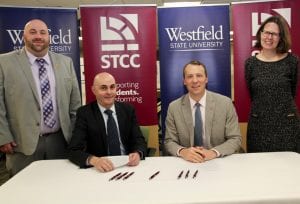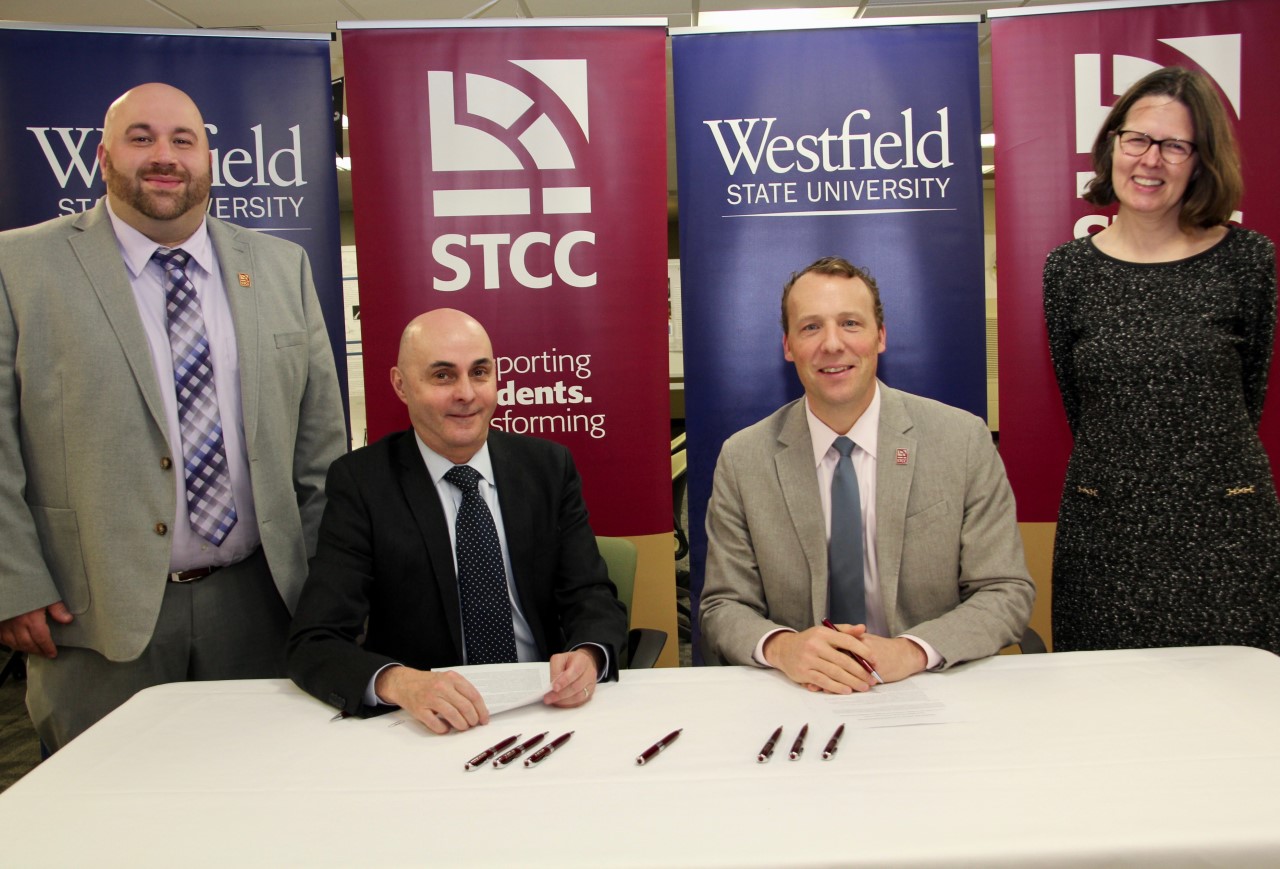
From left, Richard Greco, dean for the school of Liberal and Professional Studies at STCC, Westfield State University President Ramon Torrecilha, Ph.D, STCC President John B. Cook, Ph.D., and Emily Todd, Ph.D., interim dean of the Westfield State University College of Arts, Humanities and Social Sciences at the signing ceremony. (Photo submitted by STCC)
WESTFIELD- Leaders of both Westfield State University and Springfield Technical Community College took part in a signing ceremony Tuesday on the WSU campus to begin a partnership that would give students a pathway from an Urban Studies associate’s degree to a master’s degree.
The newly joined programs will allow students seeking an associates degree at STCC to move on and pursue a bachelor’s degree and a master’s degree at WSU. The credits for courses taken at STCC will be transferable to WSU. The credits can be applied toward the requirements for a bachelor’s degree in sociology and regional planning. They could then get their master’s degree in regional planning.
The agreement was signed by WSU President Ramon Torrecilha, Ph.D., and STCC President John B. Cook, Ph.D.
“Westfield State’s collaboration with STCC to develop this agreement underscores our commitment to our mission to provide accessible and affordable degree options, and will help to develop a strong workforce in Western Massachusetts,” said Torrecilha.
Cook said that he was excited to join with WSU, citing their established urban studies program.
“With appreciation to our talented faculty, it is exciting to now have an urban studies pathway with Westfield State University, which has a well-established program,” Cook said. “This collaboration will enable Western Massachusetts students to develop skills that will transform their communities.”
Richard Greco, the dean of Liberal and Professional Studies at STCC, said that a student’s entire undergraduate career can be covered by the program. They would only need to fund one year of graduate studies.
“The idea for urban studies grew out of the need to solve challenges within the city of Springfield such as socio-economic hardships and public health disparities,” Greco said. “Most of our students come from Springfield and stay here after graduation. This is an opportunity for them to help create positive changes in their community.”
The 2+2+1 program, which refers to the number of years in the associate’s bachelor’s and master’s programs, respectively, is a part of the Mass Transfer Commonwealth Commitment program. That program has students meeting certain education goals in certain periods of time while the Commonwealth freezes tuition and mandatory fees upon entry to the program, among other benefits.
Greco said that part of the reasoning for the agreement is to give people a better perspective on what urban studies is.
“It’s the intersection of politics, economics, sociology, and built environment,” said Greco, “Its a study in how to solve problems that relate to modern urban areas.”






